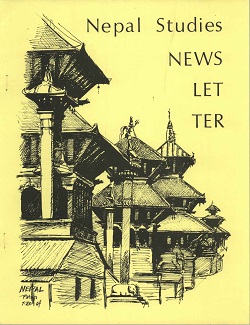Author Biography
Brendan A. Galipeau (MA, Applied Anthropology, Oregon State University, 2012) is currently a doctoral student in the Department of Anthropology at the University of Hawaiʻi at Manoa. His research interests and publications focus on environmental and economic anthropology of hydropower development, agricultural practices, and non-timber forest products in Southwest China. His current research explores economic and ecological marginalization and issues of indigeneity and identity formation as they relate to agricultural change and commodification of red wine and grape production and non-timber forest product collection among Tibetans in Southwest China.
Abstract
This work discusses pre-resettlement socioeconomic vulnerabilities to large hydropower dam construction as researched in a Tibetan village on the Mekong River in China’s Yunnan Province. Utilizing a vulnerability framework that investigates/engages local knowledge, quantitative and qualitative ethnographic research discovered that prior to resettlement, villagers have developed a very unique economy, engaging themselves in commodity exchanges built upon the highly prized caterpillar fungus (Ophiocordyceps sinensis) and other forest products. Government and private incentives given with the introduction of grape and red wine have become equally important as cash-generating agriculture. All of these economic resources are shown to display significant vulnerability to future dam induced resettlement due to locale based access which will likely be lost. These findings point to an applied economic development approach to resettlement and economic development in China’s western minority regions. The article makes specific recommendations for enhanced local involvement and prior consultation in resettlement planning for hydropower dam construction.
Acknowledgements
Guidance and assistance throughout the research and writing process was graciously provided by Bryan Tilt of Oregon State University. Additional helpful comments and suggestions were also provided by Georgina Drew, who edited the special issue of HIMALAYA in which this article appears. Assistance with field work was graciously provided by Ashu, and Zhang Yuebao of Yunnan University, and inspiration came from all members of the Integrative Dam Assessment Modeling project including Desiree Tullos, Aaron Wolf, Darrin Magee, Kelly Kibler, Edwin Schmitt, Eric Foster-Moore, Francis Gassert, and Qianwen Xu. Thanks also to Matthew Hartzell for creating the map used in Figure 1. Funding for travel was provided by the U.S. National Science Foundation’s Human and Social Dynamics Research Program (Grant #0826752), and fieldwork funding was provided by an International Graduate Research Fellowship from the Tokyo Foundation’s Sasakawa Young Leader’s Fellowship Fund.
Creative Commons License

This work is licensed under a Creative Commons Attribution 3.0 License.
Recommended Citation
Galipeau, Brendan A.. 2014. Socio-Ecological Vulnerability in a Tibetan Village on the Mekong River, China. HIMALAYA 34(2).
Available at:
https://digitalcommons.macalester.edu/himalaya/vol34/iss2/8


